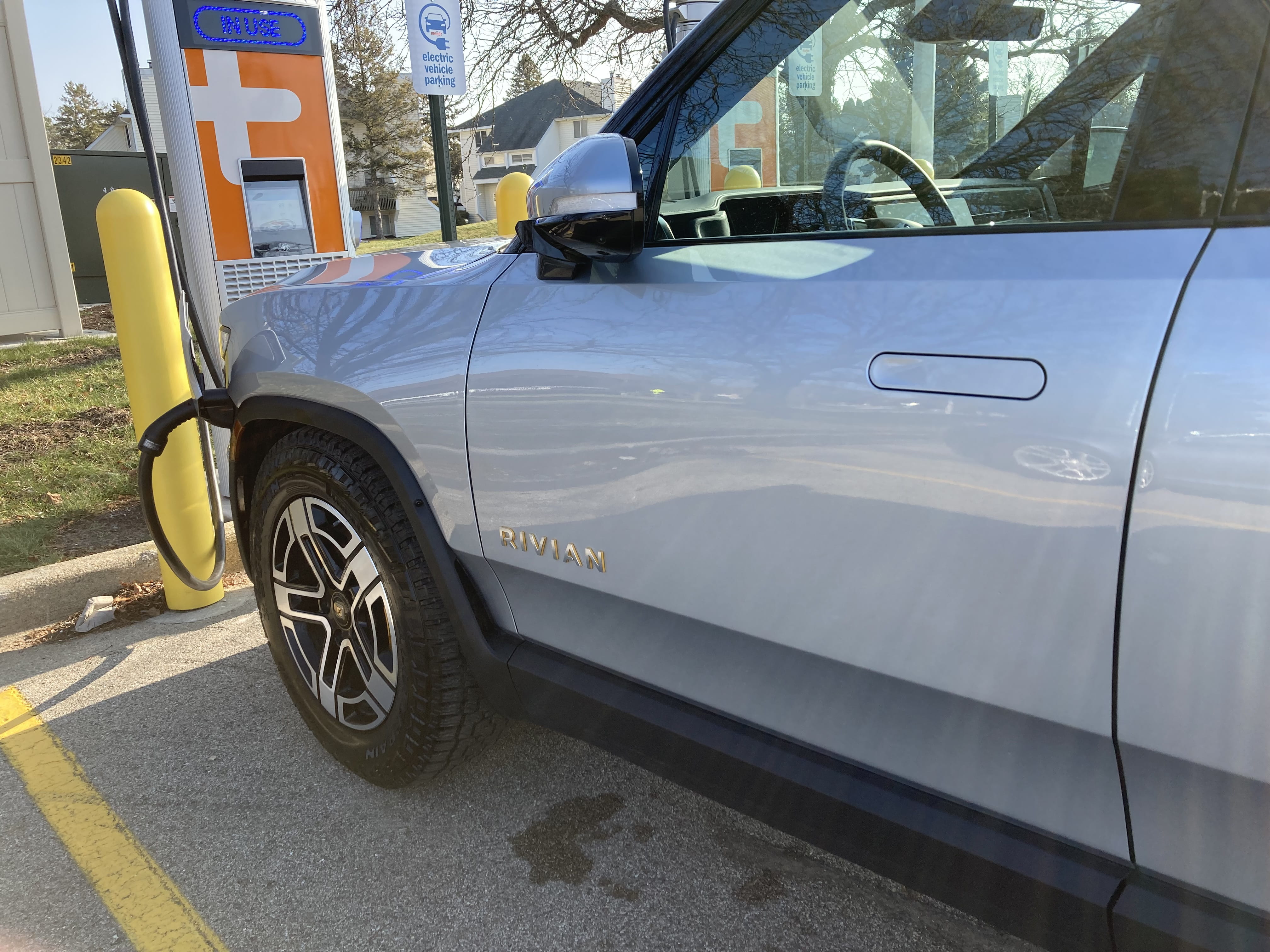The web Browser you are currently using is unsupported, and some features of this site may not work as intended. Please update to a modern browser such as Chrome, Firefox or Edge to experience all features Michigan.gov has to offer.
By the Numbers: EV infrastructure charges forward with EGLE's help
February 24, 2023
The Michigan Department of Environment, Great Lakes, and Energy’s (EGLE) Energy Services has partnered with host sites and utilities to fund 97 direct current (DC) fast-charging stations housing 206 charging units around the state, and more are on the way.

Rivian RS1 at EGLE-funded fast-charger at Meijer in East Lansing.
EGLE has so far allocated $6,548,620 from Volkswagen State Mitigation Trust funding earmarked to each U.S. state and targeted to build out a strategically planned electric vehicle (EV) charging network across Michigan. The DC fast chargers will seamlessly connect with other highly traveled Midwest routes as the number of EVs on the road continues to grow.
This progress supports the call in Michigan’s MI Healthy Climate Plan (MHCP) for infrastructure to support two million EVs on Michigan roads by 2030. The MHCP is the state’s action plan to create jobs, lower energy costs, and advance equity while putting our state on the path to carbon neutrality by 2050.
EGLE’s Charge Up Michigan Program offers grants to public or private entities that cover a third of the cost of a charging station — up to $70,000 — for site preparation, equipment, installation, and signage. Utilities have provided $6.1 million, host sites $6.6 million and EGLE $6.5 million for a total of $19.2 million invested so far in building out the DC fast-charging network. EGLE is committed to the future of mobility through investment in infrastructure that is needed to support EVs and has identified optimal charger locations across Michigan.
In addition to Charge Up Michigan, 2023 marks the start of EGLE’s administration of the National Electric Vehicle Infrastructure Formula Program (NEVI). This new, U.S. Department of Transportation-funded program will complement existing initiatives and help expand the development of Michigan’s charging infrastructure along highway corridors. Michigan is to receive $110 million in NEVI funding through fiscal year 2026.